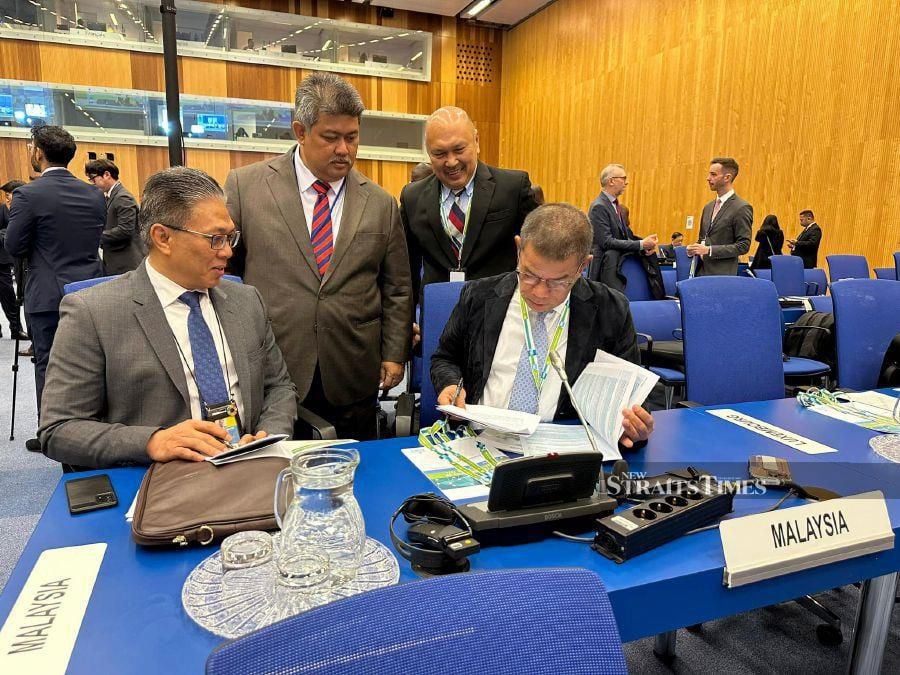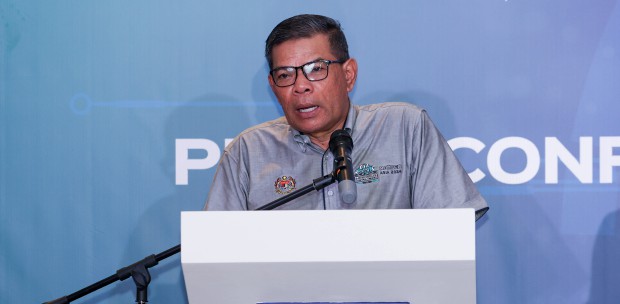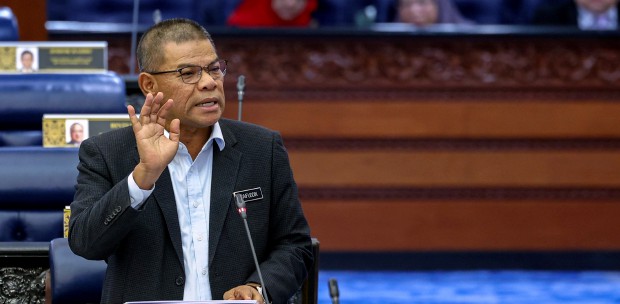KUALA LUMPUR: Malaysia will continue to broaden its international and regional cooperation in countering the world's drug problems.
Home Minister Datuk Seri Saifuddin Nasution Ismail in his statement speech at the United Nations Office on Drugs and Crime (UNODC) 67th Commission on Narcotic Drugs (CND) in Vienna, Austria also pledged to strengthen partnerships with other nations and international organisations to disrupt the illicit, production, trafficking, and distribution of drugs.
"The international and regional cooperation in combating the world drug problem will be done in accordance with our international and regional treaties obligations and through the Malaysia Anti-Drug Strategic Plan 2021-2025.
"Malaysia shall also facilitate the exchange of information, expertise and best practices to bolster the collective efforts by the international community in preventing drug-related crimes.
"In this regard, we will continue to further expand bilateral cooperation, in particular with our immediate neighbouring countries, and actively participate in regional and global initiatives," he said.
In addressing the persistent threats posed by narcotic drugs and psychotropic substances, Saifuddin also stressed the importance of a coordinated, multisectoral approach based on evidence.
"To this end, the Malaysian government has established a dedicated cabinet-level mechanism to foster collaboration and synergy among key stakeholders, developing comprehensive strategies to diminish the supply and demand for drugs and psychotropic substances.
Saifuddin also outlined reforms in Malaysia's approach to treatment and rehabilitation, including amendments to the Drug Dependent Act 1983, aimed at transitioning towards a treatment-oriented paradigm.
He also reaffirmed Malaysia's commitment to preventing the diversion of controlled substances for medical and scientific purposes for illicit activities.
"Malaysia reaffirms its steadfast commitment to ensuring the availability of controlled substances for medical and scientific purposes, while staunchly preventing diversion for illicit activities.
In controlling the movement of drugs and psychotropic substances, a total of 16,865 import and export authorisations or permits were issued from 2020 to 2023," he said.
Saifuddin also mentioned the successful role of Malaysia's law enforcement in combating drug trafficking and organised crime, highlighting successes in seizing assets acquired through illicit activities and dismantling clandestine laboratories.
"This includes the vigorous seizure and forfeiture of assets acquired through illicit activities where since 2019, Malaysia has successfully seized properties valued at RM990 million
(US$210 million) related to drug-related crimes.
"Furthermore, our law enforcement agencies have diligently dismantled a total of 98 clandestine
laboratories and apprehended 351 individuals involved in such illicit activities," he said.
The 67th session of the CND opens yesterday in Vienna to review progress made in addressing the world's drug problem and how to accelerate the implementation of international commitments.
This year's session of the commission begins with a special segment attended by several high-level officials and heads of UN bodies, as the CND marks the mid-point to achieving the commitments set out in the Ministerial Declaration adopted by the Commission in 2019.





